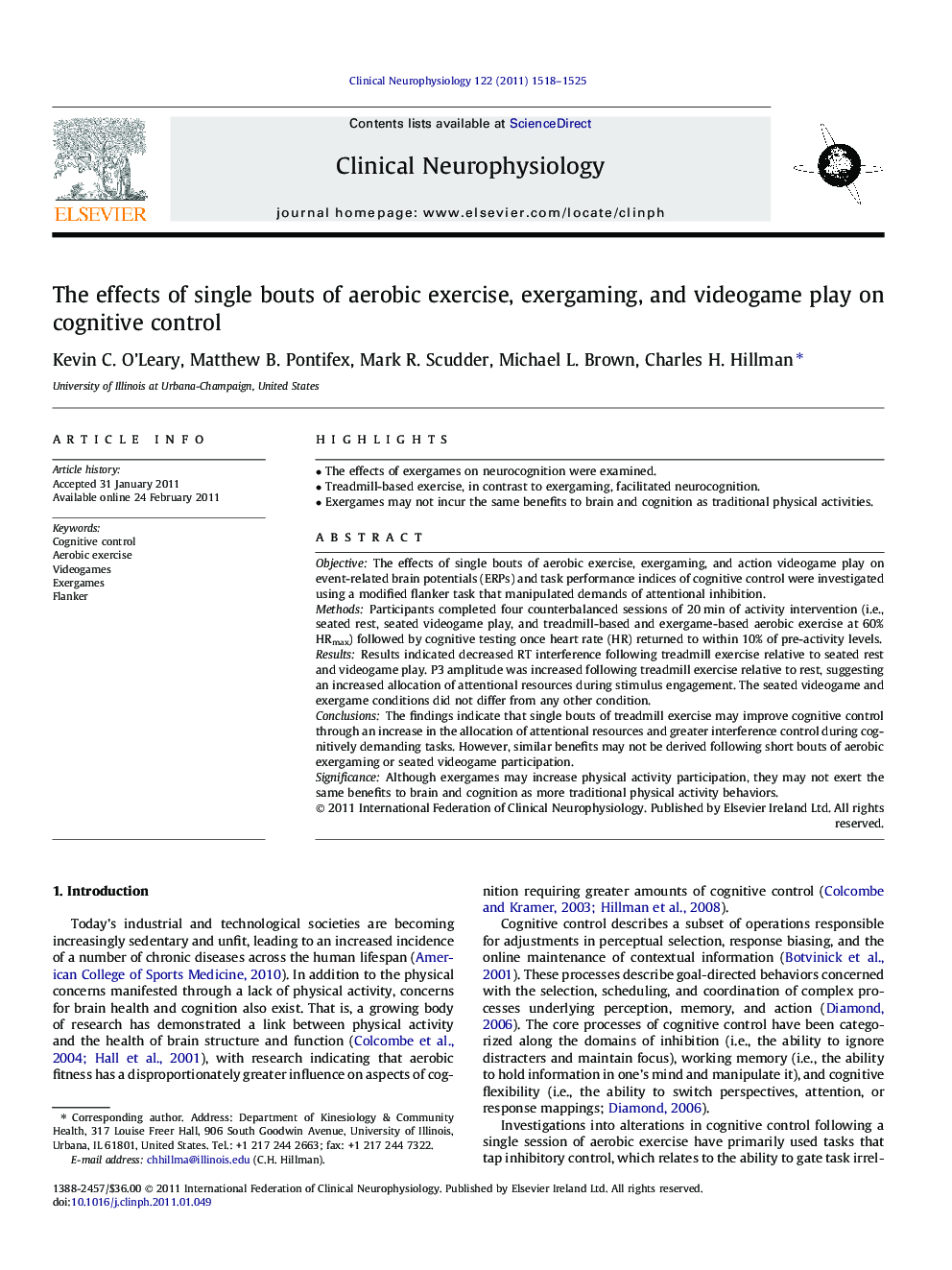| Article ID | Journal | Published Year | Pages | File Type |
|---|---|---|---|---|
| 3044014 | Clinical Neurophysiology | 2011 | 8 Pages |
ObjectiveThe effects of single bouts of aerobic exercise, exergaming, and action videogame play on event-related brain potentials (ERPs) and task performance indices of cognitive control were investigated using a modified flanker task that manipulated demands of attentional inhibition.MethodsParticipants completed four counterbalanced sessions of 20 min of activity intervention (i.e., seated rest, seated videogame play, and treadmill-based and exergame-based aerobic exercise at 60% HRmax) followed by cognitive testing once heart rate (HR) returned to within 10% of pre-activity levels.ResultsResults indicated decreased RT interference following treadmill exercise relative to seated rest and videogame play. P3 amplitude was increased following treadmill exercise relative to rest, suggesting an increased allocation of attentional resources during stimulus engagement. The seated videogame and exergame conditions did not differ from any other condition.ConclusionsThe findings indicate that single bouts of treadmill exercise may improve cognitive control through an increase in the allocation of attentional resources and greater interference control during cognitively demanding tasks. However, similar benefits may not be derived following short bouts of aerobic exergaming or seated videogame participation.SignificanceAlthough exergames may increase physical activity participation, they may not exert the same benefits to brain and cognition as more traditional physical activity behaviors.
► The effects of exergames on neurocognition were examined. ► Treadmill-based exercise, in contrast to exergaming, facilitated neurocognition. ► Exergames may not incur the same benefits to brain and cognition as traditional physical activities.
